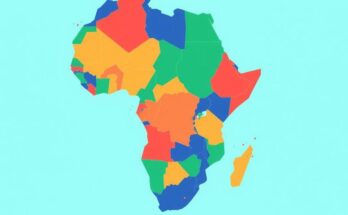CARICOM leaders have condemned Venezuelan plans to hold elections in the Essequibo region of Guyana. Venezuelan officials announced their intention to establish governance in the region on April 27 after a disputed referendum. The move has raised concerns regarding territorial claims and regional stability.
Leaders of the Caribbean Community (CARICOM) have expressed deep concern regarding statements from Venezuelan officials about planned elections in the Essequibo region of Guyana. The discussions concerning this matter took place during a three-day summit that concluded last Friday, although a formal communique from CARICOM has yet to be released. Sources indicate that the leaders received updates on the longstanding border disputes involving both Guyana and Venezuela, as well as Belize and Guatemala.
Particularly troubling for CARICOM leaders were remarks made by President Nicolas Maduro and National Electoral Council chairman Elvis Amoroso concerning elections intended for April 27 in the Essequibo region. These elections aim to establish a “Governor” and “Legislative Council” for the so-called “Guayana Esequiba State,” a territory Venezuela unilaterally claimed last year.
Venezuela purportedly reported that over half of eligible voters participated in a recent referendum, which indicated overwhelming support for the annexation of Essequibo. According to Mr. Amoroso, more than 10.4 million out of 20.7 million eligible Venezuelan voters cast their ballots in this referendum. This referendum was conducted after the International Court of Justice (ICJ) cautioned against Venezuelan claims over the Essequibo region, which is vital due to its oil resources and significant population.
In summary, CARICOM leaders are actively addressing the concerning developments regarding Venezuela’s planned elections in the disputed Essequibo region of Guyana, reflecting the ongoing tensions between the two nations. The situation is intensified by recent declarations from Venezuelan authorities and has drawn international scrutiny, particularly from bodies such as the ICJ. As CARICOM continues to monitor this issue, the implications for regional stability and international relations remain significant.
Original Source: nycaribnews.com




